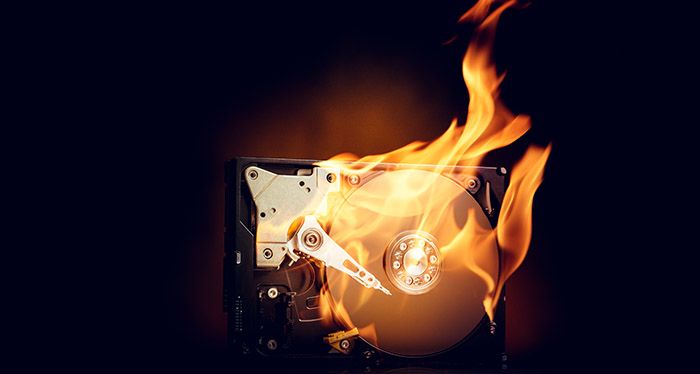SSDs more Reliable than HDDs for Boot Drives
Views, News & more

US storage provider BackBlaze has analysed the failure rate of its solid-state drives and hard drives, and the results may surprise you.
Solid-state drives (SSDs) used for boot drives were more reliable than hard disk drives (HDDs), at least during the first five years of use.
SSDs have traditionally been used in servers for speed, not reliability. Up until now, only portable devices have used solid-state drives for their reliability.
By year 5 of the study, the average annual failure rate of SSDs was 0.92%, compared to 3.55% for HDDs. The results were closer in prior years. For example, in year 4, the HDD annual failure rate was 1.83% versus 1.05% for SSDs.
Study Limitation
The study had a major limitation: it was conducted on SSDs and HDDs used as boot drives, not object storage.
The latter would likely see more intensive input/output operations, possibly leading to different results.
But if you're thinking of buying a new server and just want to know what type of drives you should use to boot up your system, you probably have an answer. SSDs are - in general - more reliable and faster than HDDs. You just have to decide whether that's worth the cost premium.
Silence That Speaks Volumes
The hyperscale cloud providers are major purchasers of storage capacity. Their silence over whether their flagship object storage services are based on HDDs or SSDs is instructive.
Firms with world-leading economies of scale still aren't ready to ditch HDDs in favour of SSDs just yet. The cost advantage of HDDs over SDDs is still too great, except when users are willing to pay a premium for SSD use.
SSDs - Greener Than HDDs?
SSDs might not be cheap enough to displace HDDs just yet, but they have an ace up their sleeve that's going to help them in the battle for market share.
SSDs require less electricity than the equivalent HDDs. Given the rising cost of carbon credits, some firms looking to cut their IT carbon footprint may opt for SSDs over HDDs.
Energy efficiency is also going to become a bigger issue for data centre operators as regional electricity grids struggle to cope with the incremental pressures placed on them by data centres, electric heat pumps and electric vehicles.
The end result could be data centre builders having to agree to lower power densities than they would prefer. Data centre tenants may get less power per rack than would otherwise be the case - unless they pay extra.
Whether SSDs really are greener than HDDs will depend in large part on how long they last before needing to be replaced.
The HDD v SSD Choice May Not Be Yours
The migration of enterprise workloads to the cloud means it may not be your choice whether the underlying storage is provided by SSDs or HDDs.
That's already true of the SaaS services you use. It will likely be true of your server workloads too if you switch to cloud hosting.
Common assumptions about SSDs being faster than HDDs but not as reliable may need to be re-examined.
You can be sure that cloud providers will be keeping an eye on the relative reliability and total cost of ownership figures for SSDs and HDDs.
It's too early to say whether SSDs will supplant HDDs in the data centre. However, the surprising results in regard to SSDs relative reliability as boot drives shows that the battle may not be as straightforward as expected.
Get in touch
020 7847 4510
We may process your personal information in order to send you information you request, measure and improve our marketing campaigns, and further our legitimate interests. For further details, see our privacy policy.
Contact us
-
- Head Office:
- hSo, 50 Leman Street, London, E1 8HQ
- Switchboard:
- 020 7847 4500
- Support (24x7):
- 0333 200 3337
- support@hso.co.uk
- Marketing & Sales:
- 020 7847 4510
- info@hso.co.uk

















